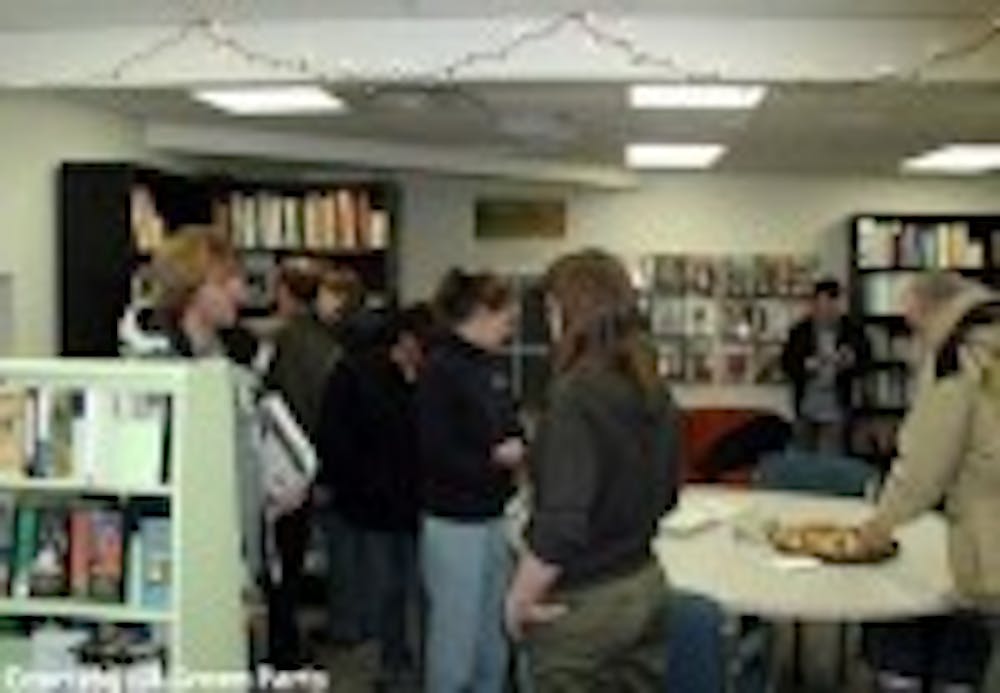During the summer of 2003, a major blackout hit much of the eastern seaboard. In response to the crisis, switches were flipped all over campus. Students, staff and faculty turned off lights and equipment that weren't in immediate use in order to ease the strain on the region's power grid.
The simple actions taken that day were reflected in UB's energy bill later that month, in which the university saw a savings of over $11,000.
Inspired by the drastic economic and environmental conservancies seen by such small alterations to daily life on campus, the UB Green office has launched their "You Have the Power" campaign.
The campaign is designed to educate those on campus about the small changes they can make to conserve energy. If $11,000 can be saved in one day, the program urges, imagine the effect daily, year-round conservation might have.
"Students need to take note of their energy habits," said Erin Cala, an environmental educator from the UB Green office.
UB Green, through posters, signs, brochures and a Web site, is reaching out with tips on how to conserve energy in offices, labs, workspaces and dorms.
Computers use enormous amounts of energy, according to Cala. Consider how the blue glow of the screen alone can illuminate a dark room. Then consider the energy these hulking machines can exhaust just sitting in the corner, unused.
A very simple solution to this rampant waste of power is to adjust the energy saving settings on each computer.
According to the "You Have the Power" Web site, shutting computers down when not in use, and using low power features on laser printers can save the University $100 per student, per year. Putting a computer on sleep mode cuts energy consumption by 90 percent alone.
"Screen savers don't save energy, they waste it," said Cala. "Instead, check to see if your monitor power saving settings are enabled; or just turn your monitor off."
Another major opportunity for resource preservation can be found in cooling and heating practices on campus.
According to UB energy policies, thermostats should be set at 68 to 70 degrees in the winter and 74 to 76 degrees in the summer. Compliance with these policies can have a great monetary impact campus-wide.
According to UB Green, $100,000 is squandered for each degree of overheating or overcooling across campus.
Next time students find themselves peeling off layers of clothing in overheated classrooms or shivering in refrigerated offices, they can report that excessive energy use to University Facilities.
Those in the dorms may be less diligent about thermostat settings than those off campus. But Cala reminds students that, even though they don't receive a bill in the mail every month, it doesn't mean the cost of heating and cooling doesn't get passed on to them.
"You shouldn't turn the heat way up and then walk around in shorts and a tee-shirt in the middle of March. Set it to where it's comfortable and put on a sweater if you have to," said Cala.
Lighting use can be decreased across campus as well. UB Green suggests turning off lights in lecture halls, theaters, classrooms and conference rooms that are not being used, and using only half of the lights available in rooms that are.
Though bright sunlight may be hard to come by in Buffalo during fall and winter months, UB Green urges folks on campus to rely on natural light whenever possible.
Appliances that sap energy for decorations sake, like lava lamps, should be reconsidered, according to the Web site. Halogen Torchiere lights not only consume vast amounts of energy, they are a fire risk and illegal in all UB buildings.
Some students think that UB students are doing a good job keeping UB looking like the lovely school it is in all facets.
"UB is a beautiful campus, not a concrete wasteland shoved into the last corner of available space in a city, like a lot of colleges are. It's great that students keep it that way," said senior Pauline Krebbeks.





